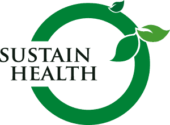Understanding Eczema
Eczema, commonly referred to as dermatitis, is a challenging skin condition that impacts approximately one-third of the Australasian population. Eczema symptoms may include:
- Moderate to severe itchy skin
- Red rash
- Papules and crusting
Accompanying these physical signs, individuals may also experience fatigue, mood swings, and disrupted sleep.
Chinese Medicine Perspective on Eczema
From a Chinese medicine viewpoint, eczema is seen as an imbalance of yin and yang within the body. The potential causes of this skin condition could be attributed to:
- Wind Heat
- Damp Heat
- Toxic Heat
- Blood deficiency causing Dryness and Wind
Diagnosing Eczema: The Chinese Medicine Way
The approach of Chinese medicine for eczema diagnosis is comprehensive and involves:
- Observation
- Questioning
- Listening
- Palpating
Practitioners gather detailed information through these methods to understand the root cause of eczema.
Customizing Treatment: The Chinese Medicine Approach
Unlike most Western treatments, Chinese medicine for eczema does not apply a one-size-fits-all approach. Acupuncture and herbal medicine are customized to suit individual needs.
Timeline of Results
Many patients undergoing Chinese medicine treatments for eczema report a range of experiences. While some notice signs of improvement within the first three months, such as reduced flare-ups, itching, and redness, others may require a more extended period of treatment. Individual results can vary, and all forms of treatment have the potential for adverse events.
Ingredients in Chinese Herbal Medicine
Chinese herbal medicine primarily comprises natural ingredients such as roots, twigs, leaves, and flowers. For eczema, the naturally shed shells of cicadas are sometimes used for their anti-itch properties.
Transitioning Off Topical Corticosteroids
Chinese medicine also aids in transitioning off topical corticosteroids. This process is undertaken gradually, simultaneously introducing Chinese herbal medicine and acupuncture to manage symptoms.
Self-Help Tips
Certain foods may worsen eczema symptoms. These include:
- Gluten
- Sugar
- Dairy
- Alcohol
- Processed foods
- Deep-fried and greasy foods
Using natural skin care products and avoiding synthetic scents can help reduce skin irritation.
The Chinese Medicine Perspective
Chinese medicine for eczema emphasises that each person’s experience with the condition is unique. If you are interested in how Chinese medicine and acupuncture could help manage your eczema, a consultation would be beneficial. Take control of your eczema today with a personalised approach that seeks to provide balance and relief.


